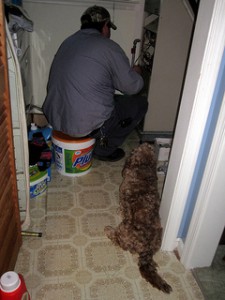Tips on Air Conditioning Troubleshooting
If you have an air conditioner in your home, chances are you’ve ran into problems when it comes to everyday function. Before you pick up that phone to call the repairman, it’s important to have some rudimentary understanding of the common air conditioner problems. In this short write-up, we’ll give you a few air conditioning troubleshooting tips to help you get to the root of the problem, helping you make an Informed decision as to whether you seek assistance.
 Most air conditioning problems are caused by a faulty filter system. This is the part of the machine that makes sure that the air coming into your house or room is free from dust particles and pollutants. This problem can be averted by regular maintenance to avoid major problems that may necessitate unit replacement. Periodically unclog your filter to keep it functioning well. You can locate this when you open the grill and reach into the cavity after turning off the air conditioner.
Most air conditioning problems are caused by a faulty filter system. This is the part of the machine that makes sure that the air coming into your house or room is free from dust particles and pollutants. This problem can be averted by regular maintenance to avoid major problems that may necessitate unit replacement. Periodically unclog your filter to keep it functioning well. You can locate this when you open the grill and reach into the cavity after turning off the air conditioner.
Here are a few diagnostic tips you can try out on your own to locate where the problem could be coming from:
- Check if air is coming out of the floor and ceiling registers. If it’s not, check if the fan outside is still running.
- Does the fan on the outside blow out hot air? In case the fan outside is still running but no cold air is being generated, this could indicate a problem with the blower motor or the run capacitor.
- Is there uneven room cooling? This could be caused by the distribution system being out of balance.
- Does the unit go on and off repeatedly? This could signify a problem with the condenser or evaporator; this is usually as a result of dust collecting in these two components.
We hope that this basic guide has given you an idea of what could be wrong with your air conditioning unit. Don’t attempt to fix your unit if you’re not sure of what goes where; this might be unsafe or cause further damage. Get in touch with your preferred air conditioning repair firm today for a speedy and permanent resolution to your cooling problems.







